In Their Own Words
Middlebury students and graduates respond to the question, “How does your spirituality add to your liberal arts education?”
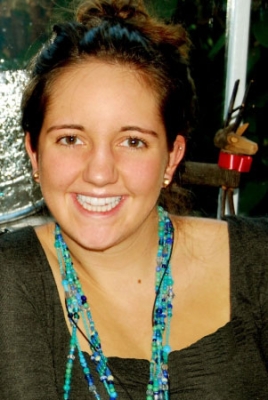
Kathryn Benson ’13
Talking with others about their faith and beliefs is truly an amazing gift because more often than not, I’ve found that regardless of what religion a person is, their traditions and values fall back to ones that are similar to mine in one way or another. The neat thing about faith on campus is that regardless of how diverse people here are, through spirituality we all have the common connection of a shared faith and love for something that is much bigger than ourselves.
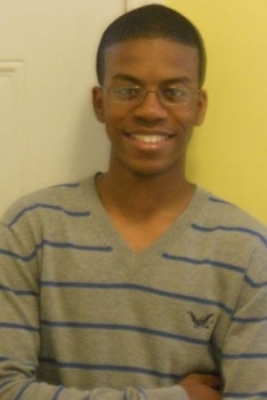
Andrew Snow ’15
I came to college with a very grounded belief in God, and I was very active in my church community. I think that in college, its interesting to see how your beliefs may tie into the classes you take, or affect your views on philosophical arguments. The same can be said of the education and the diverse topics that are discussed and their effect on faith. Either these topics have made me believe in the values of my religion, or made me double check the things I believe in.
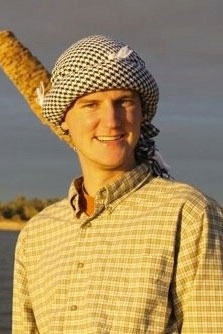
Chris Opila ’11
A liberal arts education may have provided me with a proverbial map and compass but it is spirituality that ensures my orientation towards the proper target. At its core, a liberal arts education is meant to be more than the mere achievement of a Bachelor’s degree; it is a process of preparing young men and women to become citizens in a rapidly changing, flawed, and selfish world. It refines not only the intellect but also the individual as a whole. During my three years at Middlebury and year abroad in Alexandria, Egypt, spirituality afforded me a framework and a peer group with which to digest my new-found knowledge and direct it towards a higher purpose. Spending a few hours a week sitting next families in a church pew, praising God with friends through song, or hanging my head alone in prayer provided time for vital personal and interpersonal reflection over insights.
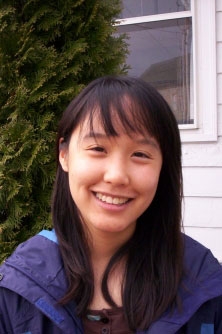
Edna Tang ’12
I feel that it is frequently assumed that students who are engaged with spiritual life, and perhaps particularly, those who identify as Christian, are already completely convinced of the infallible truth of all they believe. But perhaps one of the most frightening and valuable things that has happened to me at Middlebury is having my faith challenged, not only when I am questioned by others, but also when I have been brought face to face with my own doubts and uncertainties. And yet what I have also learned here is that it is important not to shy away from these, because if what we seek is the truth rather than to instinctively preserve and defend our own beliefs, then it is vital that we explore and wrestle with these questions as individuals and even more, as a community of people from different backgrounds.
We embrace tolerance of different religions but there is still often the sense of discomfort in talking about “spirituality” with one another because it tends to be viewed as a very private matter, and one in which it is impolite to probe too far. I share in this feeling, and yet, it is those discussions over breakfast in Proctor or standing in a stairwell in Ross, when I have been challenged to push past the discomfort, that have proved so valuable. Over and over again, I have been surprised and challenged by the honesty of other students, and these conversations are becoming as much a part of my “spiritual life” on campus as any of the weekly meetings I might attend. I would love for them to become more frequent.

Blake Harper ’15
I wish people understood that my immediate and ultimate concerns are not with what job I get, what I do on the weekend or who I call my friend. So many things that we do in college seem to distantly revolve around certain, relatively concentric, ultimate concerns and I want people to know that mine are a little different, which makes certain activities, internships and beliefs less integral to my idea of progress and personal development. This broadening of my level of comfort has also made it much easier to pursue a liberal arts education. Not only do I feel open to a broad array of experiences, but I feel grateful for them as well. When new classes and activities are approached with gratitude and wonder, it can go miles for your engagement. I’ve found that by approaching my studies with God behind, beside and beyond me I can get a great deal more out of them. Practicing mindfulness, meditation and transcendence can also do wonders for your intellect, and has been nice to feel sharper, more aware and more closely connected to the intuitive, creative brain.
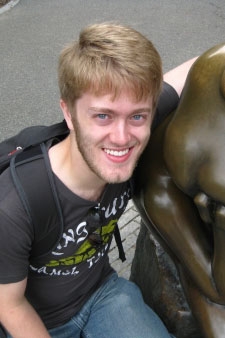
Steven Dunmire ’13
Throughout my life, I have never considered myself a particularly observant Jew. But all through high school I dutifully went to temple every Sunday to teach religious school and now at Middlebury reserve several hours each week for Hillel. While I very much believe in the tenets of Judaism and really love my religion’s emphasis on living ethically and working toward “tikkun olam” (repairing the world), what keeps me involved in spiritual life is the community. Hillel has been such an anchor for me at Middlebury. Friday night services are a place I can come to clear out the stresses of the week, refocus my mind, and get a fresh start for the days ahead. I think it’s very healthy – especially at such a demanding college – and one of the reasons why people enjoy coming to Shabbat dinners so much. Hillel also helps to reinforce for me that there is a world beyond Middlebury. The service itself inevitably makes me think of my Jewish community at home, and prayers for healing remind us all that there are folks out there facing greater challenges than whatever came up for us in the past week. I remember to be thankful for what I’ve been given and refuel my fire to go out and help improve the world.
I guess it’s a combination of this perspective and the renewing aspects of coming together every week that keep me involved in spiritual life here. Hillel grounds me as a person, and for that I am very grateful.

Charlie Arnowitz ’13
I am a proud member of Middlebury’s Jewish community. To me, there is something special and deeply spiritual about taking a few hours at the end of every week to transition into the weekend, and also real value in being involved with Jewish cultural activities. I wish people understood that in Judaism, our community is simultaneously the foundation of both our tradition and of our contemporary world outlooks. And at Middlebury, being involved in that community is, for many, an important connection to our home lives and to our values. If a liberal arts education is meant to enrich the whole person, then being involved in spiritual life, for me, has provided another lens for looking at the world and thinking about the things I learn in class and the things I do everyday.
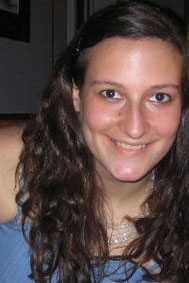
Caroline Kahlenberg ’14
There seems to be a common trend among college students that goes as follows: many who had any level of a religious childhood (whether they went to religious school or maybe just celebrated holidays) see college as a time where they are free from religious obligations that the were once forced to attend. Both of my parents, for example — who grew up in very religious households — hardly ever participated in religious life on campus. I, however, have found myself going the opposite direction: because I didn’t have much religious experience growing up, I saw college as a place to explore such an identity, and it has been extremely rewarding.
Overall, if you had told me in high school that I would be a board member of Hillel at Middlebury, I don’t think I’d believe you for a second. But after experiencing the uniqueness of Middlebury’s religious organizations—the social, intellectual, and religious components they bring to college life—I certainly see them to be a big part of my experience here.

Mori Rothman ’11
Having a spiritual life on campus helped inform my entire experience at Middlebury. For me, college was about building community and learning about how to become a better person, which are both things I searched for in my spiritual life. I felt that people were largely very open to learning and understanding where I was coming from in terms of my spiritual practice— and in some ways, I found Jewish practice easier at Middlebury than I do now, living in Jerusalem, in that it was less politicized and less rigid, and it felt like there was, in some ways, more space to struggle with and to embrace religion and religious practices than in most other places I’ve been in the world.
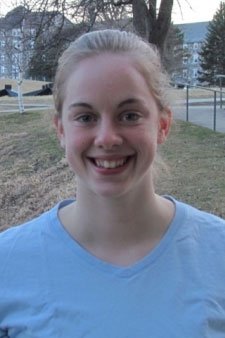
Katie Pett ’14
My faith is the single most important thing in my life. During orientation I found out about one of the Christian groups on campus, InterVarsity Christian Fellowship. Two years later I’ve found some of the deepest and most honest friendships I’ve ever had. These relationships weren’t simply products of time spent together; they came from a collective pursuit for truth. This group was formed as a safe place to ask questions about who this Jesus guy is. There’s a community of trust that no question is too big or small and we’d work together to find some answers. This questioning has freed me to have honest conversations with peers across campus - from all sorts of spiritual or non-religious backgrounds. Faith is a big question and no one has all the answers. Learning is about asking and these spiritual life groups give students a space to naturally discuss, form communities, and invite others into that discussion.
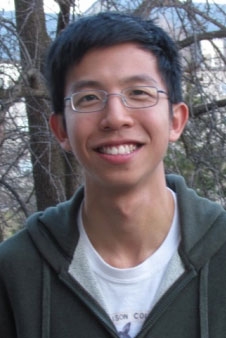
Yuan Lim ’12
Often, students and friends are surprised that I participate in spiritual or religious activities on campus. However, the curiosity quickly turns into indifference or good humor. A resignation that they have to compete with “God” for my social time. As if “God” or my spiritual life forms a competing extra-curricular activity or friend group. This impression might be justified, given that spiritual life on campus revolves around gatherings of friends with similar faith backgrounds. And that spiritual-oriented student organizations are an “extra-curricular” entity after all. Yet, I see being engaged in spiritual life on campus as a life expression that extends beyond scripture studies or praise songs into all aspects of campus life. Meaning that my spiritual life isn’t another interest I have on the side, but is inseparable from my interactions with friends, recreation, and learning. Consequently, my involvement allows me to view Middlebury’s liberal arts education through an added lens. As opposed to coloring every aspect with spirituality, it adds depth to otherwise secular discussions and learning. Even from an academic standpoint, spirituality consists of an important part of many people’s lives. Hence, hopefully I will be able to empathize with and understand the greater complexities working in all peoples lives and choices through the lens of spirituality.

